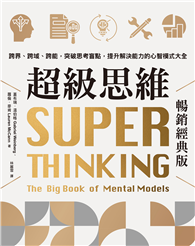The increasing concentration of influence and affluence among the few provides the stimulus for this book, which maps how uncertainty is dispersed via the cumulative strategies of the conservative right in the United States.
Since the 1970s, the conservative right has exerted exceptional force to shape public response and governmental policy in a manner favorable to neoliberal logic and practice. The right's strategies, termed structuring mechanisms, reliably reconfigure practical knowledge and a skein of human interactions and material conditions across discourses and institutions. This book illustrates these mechanisms through four cases: PC discourse; a cultural politic of economic resentment; and the two parallel struggles over the authority to define reality pivoting around academic freedom and global warming. Together, these mechanisms collude to reshape the boundaries of public life in the form of private interests.
Marlia Banning proposes a critical methodology that the book employs, a rhetoric of the everyday, to help citizens and critics map conservative and neoliberal efforts to reshape the contours of public life, and to reinvigorate the concept and reality of the public good. An everyday rhetoric aims to trace the amorphous and shifting processes through which hegemony is accomplished and to imagine new ways of engaging public life.
| FindBook |
有 1 項符合
Manufacturing Uncertainty: Contemporary U.S. Public Life and the Conservative Right的圖書 |
 |
Manufacturing Uncertainty: Contemporary U.S. Public Life and the Conservative Right 作者:Banning 出版社:Peter Lang Inc., International Academic Publi 出版日期:2013-06-26 語言:英文 規格:精裝 / 205頁 / 22.1 x 15 x 1.5 cm / 普通級 |
| 圖書館借閱 |
| 國家圖書館 | 全國圖書書目資訊網 | 國立公共資訊圖書館 | 電子書服務平台 | MetaCat 跨館整合查詢 |
| 臺北市立圖書館 | 新北市立圖書館 | 基隆市公共圖書館 | 桃園市立圖書館 | 新竹縣公共圖書館 |
| 苗栗縣立圖書館 | 臺中市立圖書館 | 彰化縣公共圖書館 | 南投縣文化局 | 雲林縣公共圖書館 |
| 嘉義縣圖書館 | 臺南市立圖書館 | 高雄市立圖書館 | 屏東縣公共圖書館 | 宜蘭縣公共圖書館 |
| 花蓮縣文化局 | 臺東縣文化處 |
|
|
圖書介紹 - 資料來源:博客來 評分:
圖書名稱:Manufacturing Uncertainty: Contemporary U.S. Public Life and the Conservative Right
內容簡介
|











